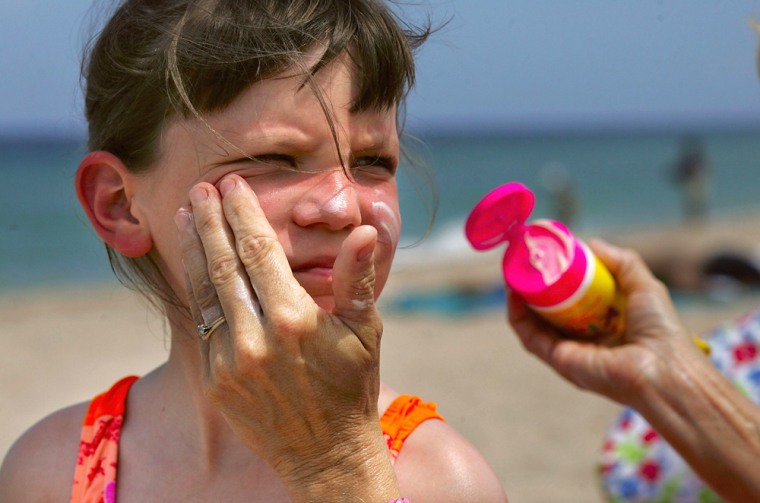By SELF Magazine staff
Have your healthiest summer yet! Ease into the dreaded "swimsuit season" with healthy tips from TODAY experts. All throughout May, we'll offer smart do-it-yourself ways to look, eat and feel better. So stop stressing about that swimsuit, and read on.
1. Is it possible to pop a sun protection pill?
Sort of. Heliocare's sun protection pill ($50 for 60 pills) is an antioxidant-rich supplement that helps fight sun-induced inflammation. "But it can't take the place of sunscreen," says Ellen Marmur, M.D., chief of dermatology and cosmetic surgery at the Mount Sinai Medical Center.
2. Can sunscreen cause cancer?
No—it prevents it. Despite findings that suggest some sunscreen ingredients spurred cancer growth in lab animals, sunscreens are safe, "based on critical analyses of the animal study, data in humans and all the evidence we have," says Henry W. Lim, M.D., chairman of the department of dermatology at Henry Ford Hospital.
3. Are "natural" sunscreens truly free of chemicals?
Sunscreens with physical blockers—like zinc oxide—are generally thought of as natural because they come from minerals; those made with avobenzone are officially classified as "chemical." The truth: Zinc oxide and titanium dioxide are put through a chemical process before they end up in the bottle, so they aren't totally natural, either.
Three reasons you could be sun-vulnerable
1. You're on oral or topical medications. Even if you wear sunscreen, certain antibiotics for treating acne and urinary tract infections, as well as isotretinoin (aka Accutane), some blood pressure meds and sulfur creams can all leave you fried. That's because "some drugs break into tiny particles when they penetrate skin or enter the bloodstream; these can react with UV rays and cause a burn," Dr. Marmur says. Vacationing in the sun? Ask your doctor if you could temporarily stop taking your Rx about two weeks before you go, to minimize your chances of getting scorched.
2. You're on hormones or you're pregnant (or trying to be). The Pill and some hormone regimens (e.g., those for infertility treatments) can cause melasma, a type of sun-induced pigmentation.
3. You have a health condition. Certain autoimmune diseases (such as lupus) can increase vulnerability to sun rashes. Some folks also have a sun allergy, aka polymorphous light eruption, in which a rash arises after even intermittent UV exposure. Stay in the shade!
More from SELF:
- Your Sunscreen Protection Guide
- SELF Healthy Beauty Awards: Best Sun Protection
- How Three Women Gave Up The Tanning Bed
- How They Lost Over 195 Pounds!
- 20 Slimming Superfoods
- Are You Wearing The Wrong Sneakers?
More from TODAY Health's Summer Shape Up series:
